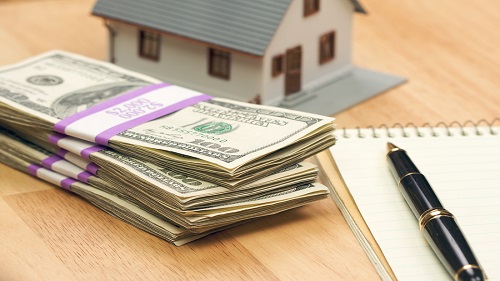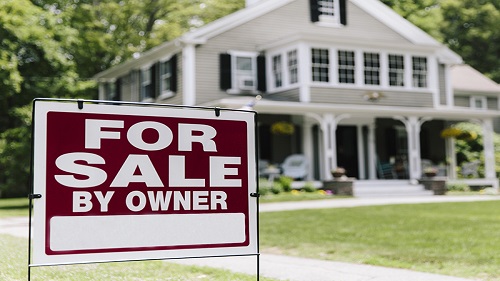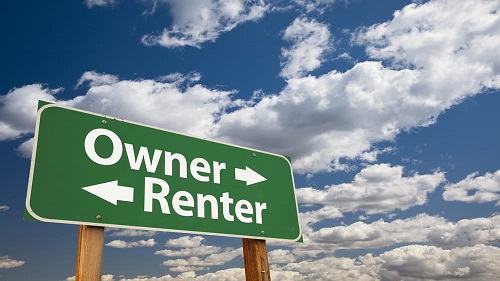
Mortgage Dove
What is Earnest Money in Real Estate?
When you are negotiating to buy real estate, the words “earnest money” might pop up from time to time. But what does earnest money mean in the world of home buying? Is it something to be taken seriously? Or should you just hang onto it in case you need a down payment?
When it comes to today's market, making sure your offer stands out is crucial. You can show a seller you're serious about buying a house by getting preapproval from a lender or using the Mortgage Dove program. There is also the option of putting down an earnest money deposit.
Throughout this article, you will learn what earnest money is, how to use it, and how to protect yourself once you deposit it.
What Is Earnest Money?
To show that you are serious about purchasing a home, the earnest money is put down before closing. Alternatively, it is called a good faith deposit .
A purchase agreement between a seller and buyer takes the property off the market while the transaction moves to closing. A failed deal means the seller has to relist the home and start over, which could cost the seller a lot of money.
The seller is protected by earnest money if the buyer backs out of the transaction. Typically, it's between 1 and 3% of the sale price, and it's held in an escrow account until the deal is complete. You can figure out the exact amount based on what's customary in your market. In the event of a smooth transaction, the earnest money will be applied to the buyer's down payment or closing costs.
Earnest money is refunded to the buyer if the contract falls through due to a failed home inspection or any other contingency. If a buyer deposits the earnest money, there is less likelihood that he will place multiple offers and then walk away after the seller removes the property from the market.
How Much Does Earnest Money Cost?
Earnest money deposits can be negotiated between the buyer and seller, but typically range between 1% and 2% of the home's purchase price. When the housing market is hot, earnest money deposits may range between 5% and 10% of the property's sale price.
The earnest money deposit is usually a percentage of the sales price, but some sellers prefer a fixed amount, such as $5,000 or $10,000. A higher earnest money amount indicates that the seller is more likely to take the buyer seriously. Hence, a buyer should offer an earnest deposit that makes sense to the seller but doesn't risk putting extra money at risk.
To ensure that a prospective buyer shows good faith during the due diligence process, a seller may require ongoing, periodic earnest deposits. In certain situations, a seller may require an earnest deposit on a fixed schedule over a three-month due diligence period from the buyer. It may be possible for the seller to recover losses by keeping portions of the earnest money if the buyer fails to meet any earnest money deposit requirements.
How Is Earnest Money Paid?
In most cases, the earnest money is paid by certified check, personal check, or wire transfer. This money is placed in an escrow or trust account held by a real estate brokerage, law firm, or title company. As soon as the down payment and closing costs are paid by the buyer, the funds are deposited into the account and held until closing.
It is significant to note that escrow accounts can earn interest, just like any other bank account. Upon earning interest over $600, the buyer must fill out a W-9 form with the IRS to receive the interest.
Is Earnest Money Refundable?
It is not always possible to refund earnest money. The good news for buyers is that earnest money will usually be refunded as long as the buyer acts in good faith. When contracts are not broken or decision deadlines are met, buyers usually get their earnest money back. Buyers often get their earnest money back in the following circumstances:
The home inspection reveals that the property being sold has material issues. It is usually up to the buyer to negotiate who should be responsible for repairs or to back out of the deal.
- When a home's appraised value is lower than its purchase price; if the buyer wants a lower purchase price, he can negotiate or back out.
- If the buyer is unable to sell their current house (as long as this home sale contingency is agreed upon)
- When a buyer is unable to obtain a loan or financing (as long as this funding contingency is agreed upon)
There are many different situations, but in general, the seller keeps the earnest money if the buyer chooses not to proceed with the home purchase for reasons not specified in the contract. For example, if a buyer simply changes his mind and decides not to purchase the property, the seller is most likely entitled to retain the earnest money.
Example of Earnest Money
For example, Tom might want to purchase a home worth $100,000 from Joy. As part of the transaction, the broker deposits $10,000 in an escrow account. During the next six months, Joy, who is currently living in the home, will move out under the terms of the subsequent agreement between both parties.
However, Joy is unable to relocate by moving day. As a result, Tom cancels the deal and gets his deposit money back. During this time, the deposit earned $500 in interest from the escrow account. In this case, Tom does not need to fill out a tax form since the amount is less than $600.
Protecting Your Earnest Money Deposit
To protect their earnest money deposits, prospective buyers can take several measures.
Contingencies for financing and inspections should be included in the contract. If the buyer cannot get financing or a serious defect is found during an inspection, the deposit may be forfeited.
Make sure the contract terms are in writing. There should be a written contract between a buyer and seller. By clarifying any misunderstandings, the agreement's terms are set in stone. It is always possible to amend a contract, but make sure both parties sign every revision in writing.
Read, understand, and abide by the contract's terms. If the contract requires a home inspection to be completed by a certain date, the buyer must meet that deadline or risk losing the deposit.
Use an escrow account to hold funds. Escrow funds should not be sent directly to the seller. Even if you are entitled to earnest money refunds, if the funds are in direct possession of the other party, the other party can control the funds and not release them.
Ensure the proper handling of the deposit. Deposits should be made payable to a reputable third party, such as a well-known brokerage, escrow company, title company, or law firm (don't give deposits directly to the seller). The buyer should verify that the funds will be held in an escrow account and obtain a receipt at all times.
What is an Earnest Money Payment?
Essentially, the earnest money is a deposit on a house. Typically, it is between 1-10% of the home's sale price. Although earnest money doesn't obligate a buyer to make a purchase, it does require a seller to remove the home from the market before an appraisal is conducted. The earnest money is deposited as a sign of good faith during the home purchase process.
What Happens To Earnest Money If A Deal Fails?
Should something go wrong with the appraisal, the earnest money will be returned. For instance, the appraisal price may be lower than the sale price, or the house may have significant flaws. A buyer may not be able to get his or her earnest money back if the flaw was not identified in the contract or if the buyer decides not to purchase the house within the given period.
How Can Earnest Money Be Protected?
To protect their earnest money deposits, prospective buyers can follow the following precautions. Buyers need to ensure defects, financing, and inspection contingencies are included in the contract. In this way, the deposit is protected from forfeiture even if there is a major flaw or financing is not secured. It is also imperative to read the contract carefully and adhere to its terms. Occasionally, the contract specifies a certain date by which the inspection must be completed. The buyer should abide by these terms accordingly to prevent forfeiture. It is also important that the buyer works with a reputable broker, title company, escrow company, or legal firm to handle the deposit appropriately.
How do you get your earnest money back?
In most cases, a buyer will receive their full earnest money deposit(s) back if they follow the contract terms and adhere to all deadlines agreed to with the seller. Some or all of the earnest deposit funds may be returned to the seller if the buyer fails to comply with the agreement.
How Do You Lose Earnest Money?
Buyers and sellers often outline contingencies in agreements to indicate where a buyer can pull out of an agreement. In addition to failing to pass a home inspection, failure to secure financing, or failure to sell an existing property, there are several other contingencies. When the buyer fails to proceed with the sale for reasons other than those stipulated in the contingency agreement, the earnest money will be lost.
What Are The Benefits Of Paying Earnest Money?
You may need earnest money if you're shopping in a competitive real estate market, but it is not always a requirement. To ensure that the sale won't fall through, sellers prefer good faith deposits. For both parties in the transaction, earnest money can act as an added level of protection.
In addition, earnest money reduces your down payment or closing costs because it goes directly toward your down payment. By putting up some money earlier in the process, you're essentially securing the loan.
The Bottom Line
As part of their initial agreement to transfer ownership rights of property, buyers are often required to deposit earnest money into an escrow account. There are several reasons why the buyer and seller can agree to back out of the agreement. If the buyer breaks the contract or fails to meet the deadlines, the seller can keep the earnest money as compensation for the breach of good faith.
"Mortgage Dove makes home financing convenient for every American. You can count on us to provide a home buying experience tailored to your personal needs and financial situation. We strive to give you the peace of mind that your home financing goals can be achieved.”

Mortgage®
www.mortgagedove.com



